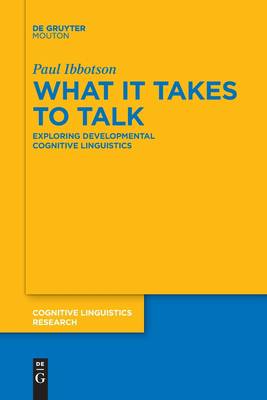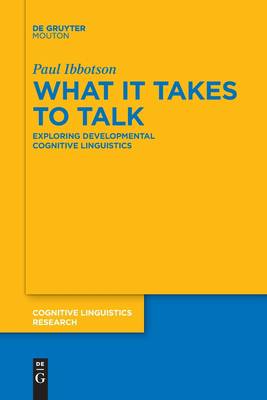
- Afhalen na 1 uur in een winkel met voorraad
- Gratis thuislevering in België vanaf € 30
- Ruim aanbod met 7 miljoen producten
- Afhalen na 1 uur in een winkel met voorraad
- Gratis thuislevering in België vanaf € 30
- Ruim aanbod met 7 miljoen producten
Zoeken
€ 30,45
+ 60 punten
Omschrijving
This book puts cognition back at the heart of the language learning process and challenges the idea that language acquisition can be meaningfully understood as a purely linguistic phenomenon. For each domain placed under the spotlight - memory, attention, inhibition, categorisation, analogy and social cognition - the book examines how they shape the development of sounds, words and grammar. The unfolding cognitive and social world of the child interacts with, constrains, and predicts language use at its deepest levels. The conclusion is that language is special, not because it is an encapsulated module separate from the rest of cognition, but because of the forms it can take rather than the parts it is made of, and because it could be nature's finest example of cognitive recycling and reuse.
Specificaties
Betrokkenen
- Auteur(s):
- Uitgeverij:
Inhoud
- Aantal bladzijden:
- 234
- Taal:
- Engels
- Reeks:
- Reeksnummer:
- nr. 64
Eigenschappen
- Productcode (EAN):
- 9783110992038
- Verschijningsdatum:
- 18/07/2022
- Uitvoering:
- Paperback
- Formaat:
- Trade paperback (VS)
- Afmetingen:
- 156 mm x 234 mm
- Gewicht:
- 335 g

Alleen bij Standaard Boekhandel
+ 60 punten op je klantenkaart van Standaard Boekhandel
Beoordelingen
We publiceren alleen reviews die voldoen aan de voorwaarden voor reviews. Bekijk onze voorwaarden voor reviews.











